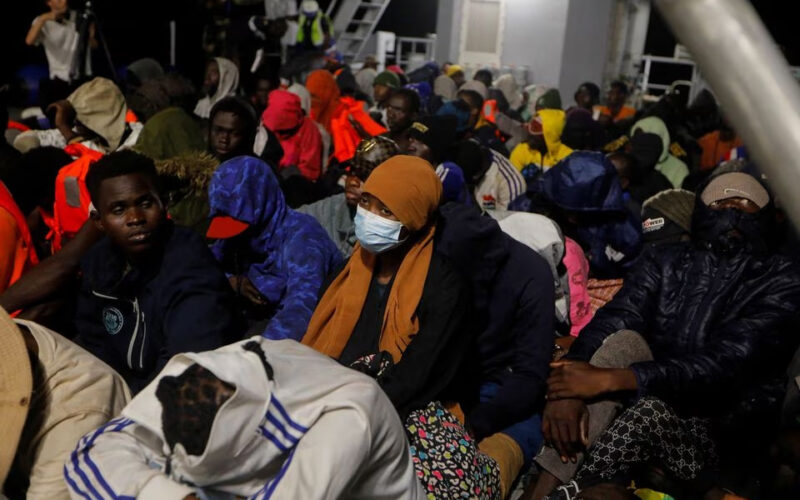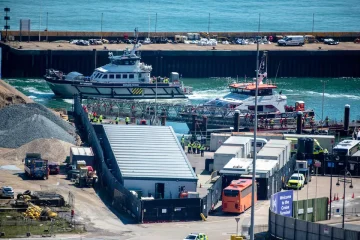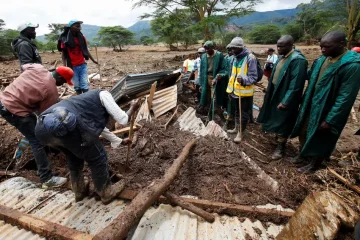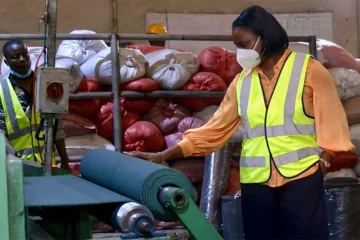AFTER a fruitless 10-hour search in stomach-churning waves, the Senegalese navy patrol boat Walo had started its long journey back to port on Thursday evening when its radar picked up a neon blip – another vessel was moving fast through the dark seas.
Its high nighttime speed raised the suspicions of the Walo’s crew, trained to spot the differences between ordinary fishing boats and those filled with thousands of would-be migrants attempting perilous ocean missions each year to Spain’s Canary Islands.
The Walo decided to give chase. It took over an hour to get close enough for its infrared camera to pick out a tiny speck, dwarfed by the roiling water. Even from a distance, the sailors could tell the simple wooden fishing boat was packed with scores of people.
The vessel ignored initial efforts to intercept it. But the Walo dispatched armed special forces in support boats to ferry its 159 passengers to its ship, ending their desperate quest to reach Europe.
Migrants protested the arrest.
“You think you’re going to stop us? We’re going back! We will reach Spain, or we will die,” one man shouted into the night as he climbed on board.
The operation offered a rare insight into the complexity of curbing migration from West Africa to Europe, where African governments are under increased pressure to secure borders – and into the determination of people to leave.
Migration experts say simply blocking the flow of migrants doesn’t work. Africa’s young population is booming, and the will continue to flee relatively impoverished nations, they say, adding it is unlikely to slow in the future.
Over 30,000 migrants have reached the Canary Islands since the start of this year, more than double the number for the same period in 2022, according to Spanish interior ministry data. This is nearing the all-time record of 31,678 recorded reaching the islands in 2006.
The numbers had dropped as most migrants chose land routes through the Sahara Desert and the Mediterranean Sea. But those land journeys are now much better policed, leading to another rise in ocean passage.
Over 50% of this year’s arrivals to the islands are from the coastal countries of Senegal or Gambia, the ministry says.
‘WE WILL SUCCEED’
Thursday’s search mission was conducted by the Senegalese navy, backed up by Spain’s Civil Guard, under a joint initiative to curb the nearly record number of people braving hundreds of miles of open ocean to reach the Canary Islands.
The passengers, almost all from Gambia, included 15 women, several children, and a newborn baby. The more vulnerable were offered shelter in the Walo’s cabin. The rest huddled together on the rear deck as the boat began the hours-long trip back to Senegal in the early hours of Friday.
“Their boat would not have survived this. It is our duty to save them,” said the Walo’s Commander Diallo, who asked to be quoted only by his last name and rank.
The Walo has intercepted around 4,000 migrants and 30 boats since launching operations in August, another officer on the boat said.
Less data is available on the number of people lost at sea. In August, a boat carrying over 100 migrants from Senegal was found adrift near Cape Verde. Only 38 survived.
But still many continue to leave.
“If we still had plenty of fish, I wouldn’t need to take the pirogue to go to Europe,” said fisherman Mbaye Ndaw who was taken aboard the Walo. “There’s no more fish in the sea.”














